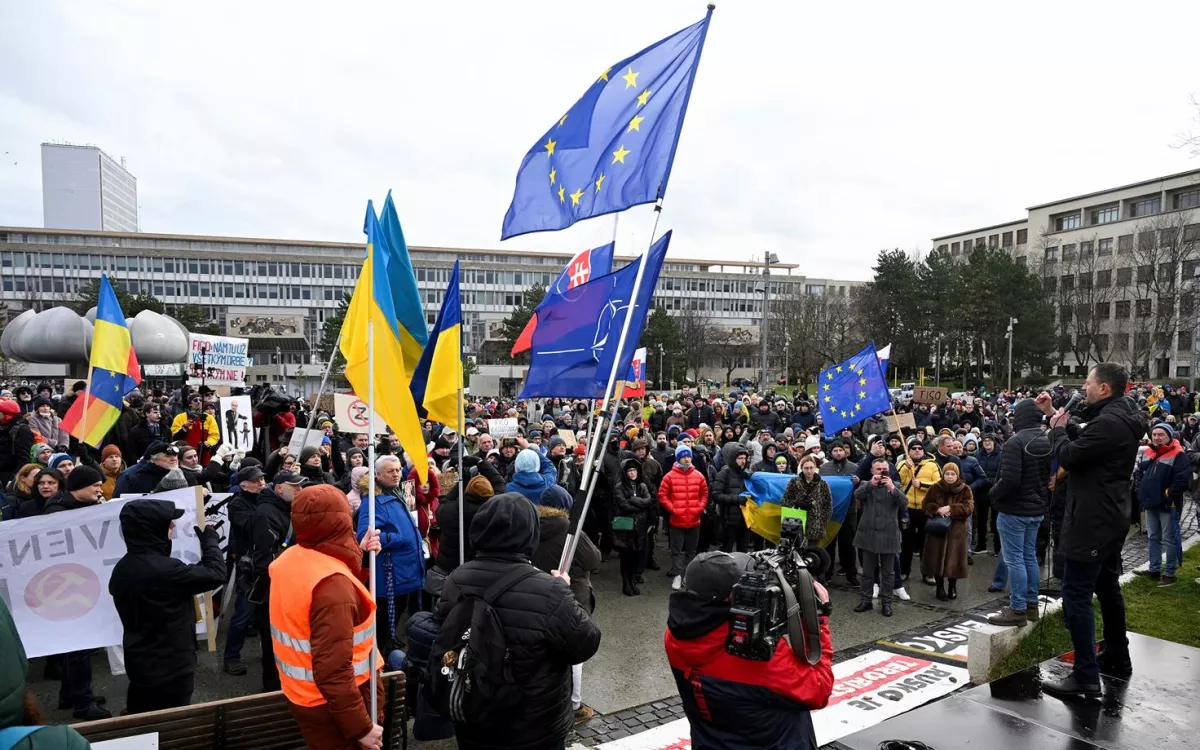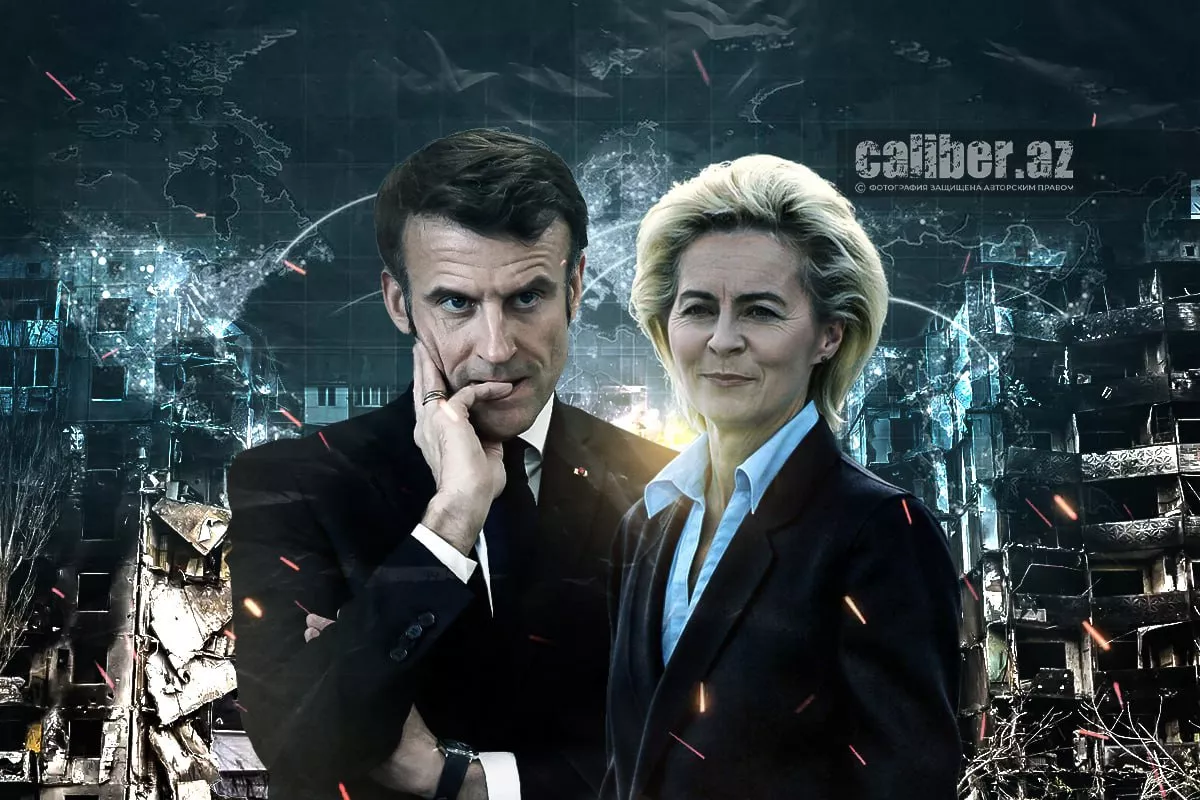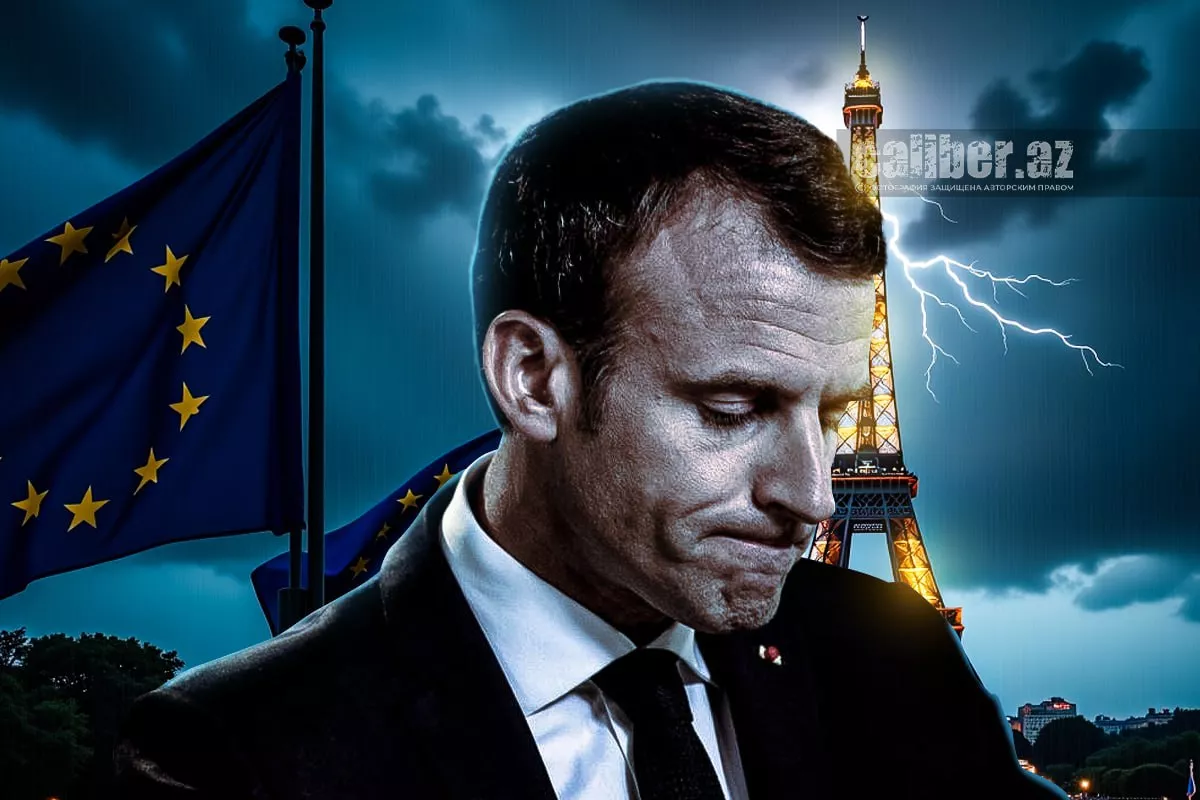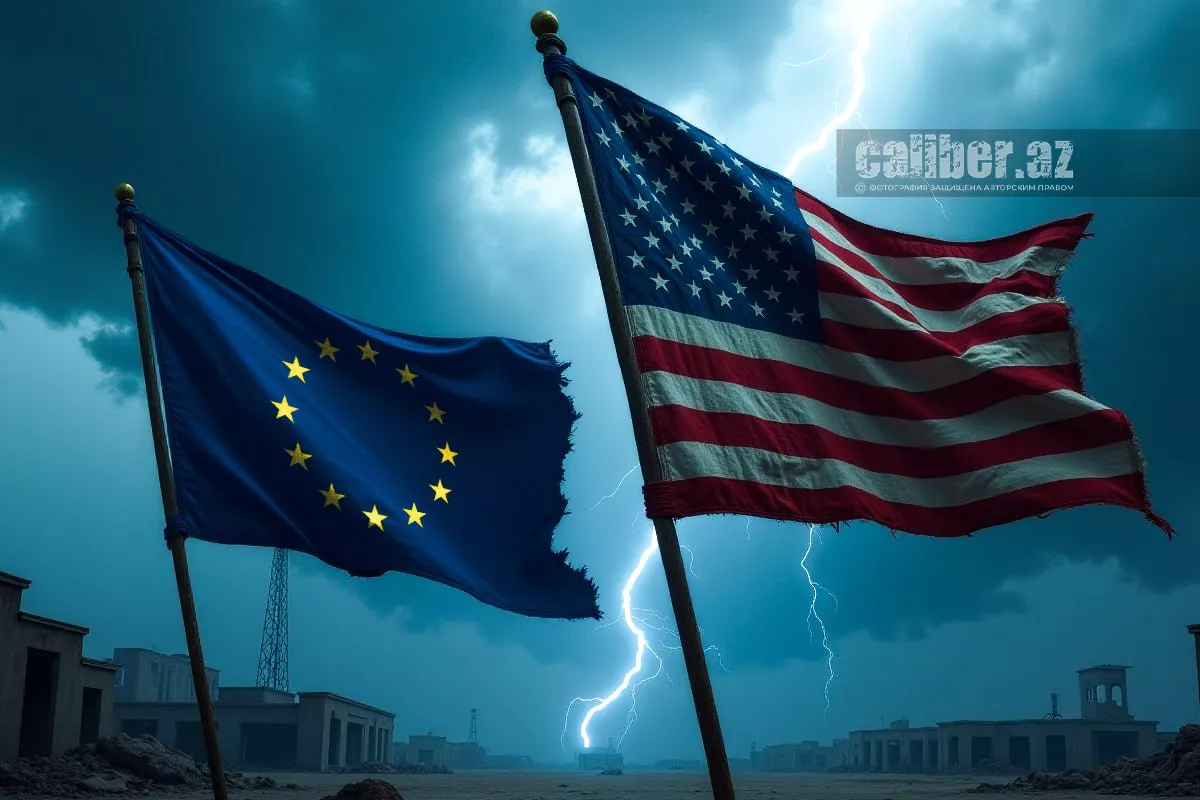Brussels in search of way out of geopolitical deadlock Europe at a crossroads
Europe is slowly but surely boiling over. The main reason for this is that Europe, accustomed to living under the umbrella of the United States (not only in the realm of security), has become utterly faceless. But wasn't this the direction things were heading in over the past decades, when the European continent, once the leader in shaping political-economic and cultural-philosophical thought for the world, stopped leading in this area? But could it have been any different, when the so-called "liberal values" lobbied by Brussels have alienated even some European states that genuinely resisted the dilution of their national and spiritual roots?
In any case, today Europe is boiling over in many ways. In light of this, let us first focus on the wave of protests in several European countries. Belgrade has erupted, with Serbian Vice Prime Minister Aleksandar Vulin labeling the "color revolution in Serbia" as the work of the "deep state" of the United States, which seeks to "disrupt President Trump's peace initiatives," as well as "certain European intelligence services." This line of action is aimed at "destroying Serbia and bringing to power politicians ready to live under Western dictates, even to the point of participating in anti-Russian sanctions." In this regard, Vulin did not rule out the "radicalization of the crowd in the near future."
Protests also continue in Slovakia, organized by the "Peace for Ukraine" association, which calls for financial support for the purchase of ammunition for the Ukrainian army. On March 21, thousands of Slovaks in various cities of the country sharply criticized the "pro-Russian policy and authoritarian tendencies" in the actions of Prime Minister Robert Fico. Among the protesters' slogans was the call for the resignation of the government, which, according to the speakers, "capitulated to Russia" by halting arms supplies to Kyiv. Against this backdrop, Fico, like the top leaders of Serbia, also spoke of an external influence on the disruption of law and order in the country, manifested in the initiation of anti-government protests by structures "in contact with the Slovak opposition and foreign forces."

Similar demonstrations also took place in March in Hungary, under the opposition party TISZA. The slogans were the same — the resignation of Hungarian Prime Minister Viktor Orbán and personnel changes in the government. As TISZA leader Péter Madár stated, "those who deceive their own people must be thrown into the dustbin of history." In response, Orbán, declaring that the time had come to destroy the "shadow army" of NGOs and politicians who "are paid from the U.S. and Brussels," promised to deal with politicians and journalists receiving foreign funding.

Surely, readers have already figured out why Hungary, Slovakia, and Serbia have been destabilized. Against this backdrop, European leaders have yet to develop a unified stance on both the issue of peacekeepers in post-war Ukraine and the increasingly worn-out topic of security guarantees for Kyiv. On March 23, UK Prime Minister Keir Starmer once again stated how difficult it would be for Ukraine "without reliable security arrangements," beyond which "Russian President Vladimir Putin will eventually break any potential deal." Yes, London, like Paris, announced its intention to send peacekeepers to Ukraine after a peace agreement is signed between Ukraine and Russia. However, Germany is still not considering this issue in terms of a favorable resolution for Kyiv (though Berlin has shown itself to be active in passing a bill that allows for the use of hundreds of billions of euros on defense and infrastructure projects).
Meanwhile, the recent summit of EU leaders ended in failure, as the participants rejected the proposal by EU High Representative for Foreign Affairs, Kaja Kallas, to provide €5 billion for the purchase of 2 million munitions for Ukraine. The final document merely acknowledged the European Council's intention to coordinate the increase of military support for Ukraine by EU member states and other participating countries on a voluntary basis. A significant context in this event was the fact that Kallas's proposal was rejected despite a video appeal from Ukrainian President Volodymyr Zelenskyy, stressing the urgent need for funds for artillery shells "as soon as possible." But, but, but…

Against the backdrop of the lack of real unity on the European continent, EU leaders continue to repeatedly wade into a losing quagmire by initiating protests in European countries against right-wing parties. As if not understanding that 20 to 30 percent of the same population has cast their votes in local and national elections for candidates from the right. Ignoring this fact, the top leaders of the European Union initiate protests against this branch of political life in the countries. Last week in France, nearly 100,000 people took to the streets. Yes, on the surface, they demanded "an end to racism and discriminatory policies," but more than 20,000 Parisians, protesting the situation "encouraging and supporting the language of hatred and extremism," expressed their rejection of right-wing parties, especially in the "atmosphere of a rightward shift in French politics."

Meanwhile, in Amsterdam (Netherlands), over 10,000 people participated in a rally organized by the anti-racist association Comité 21 Maart, which was declared as a protest "against racism, fascism, and ultra-right-wing politics." In both cases, the media noted the presence of Palestinian flags among the protesters, and demonstrators in France openly criticized the Middle Eastern policy of the Élysée Palace, accusing Emmanuel Macron of "complicity in Israel's anti-Palestinian actions." It is highly symbolic that the Middle Eastern issue also emerged at the EU summit mentioned earlier. As stated at the end of the forum, EU leaders, expressing regret over the renewal of violence in the Gaza Strip, where more than 500 people, including many children, have been killed in Israeli airstrikes, called for the restoration of a ceasefire and the release of hostages. As analysts emphasize in this regard, this shift in European policy is a kind of signal from Brussels to Washington about its disagreement with the Trump administration's policy in relation to the Middle East.
At the same time, on a global scale, Europe is still attempting to mitigate the crisis in relations between Washington and Brussels. This is clearly reflected in the statement made by European Commission President Ursula von der Leyen about the reasons for delaying the EU's retaliatory measures against specific sectors in the U.S. regarding the increase in customs duties until mid-April. As she put it, "We deeply regret this measure. Tariffs are taxes. They are bad for business, and even worse for consumers. These tariffs are disrupting supply chains. They bring uncertainty for the economy. Jobs are at stake. Prices will go up. In Europe and in the United States. The European Union must act to protect consumers and business."

Perhaps even the briefly outlined episodes from contemporary European life above clearly indicate Europe's considerable geopolitical disorientation, from which it seems unable to escape. The paradox, however, lies in the fact that the real political pressure exerted by the American administration on Brussels—both in Munich and afterward—should have, in theory, prompted Brussels to assert itself and make a firm stand, proving its independence not just in words but in action. Yet, so far, it has failed to do so.
Perhaps Friedrich Merz, leader of the CDU/CSU party that won Germany’s February elections and the likely future chancellor, was the first to grasp that “when there is no unity among allies,” it is better to act independently. Thus, Berlin has begun taking its own steps, at least in terms of strengthening its national defense capabilities. However, the question remains—how well will these steps be received by all of Germany’s allies? For now, they have remained silent. But how they will respond in the future is something we will continue to watch with keen interest.








